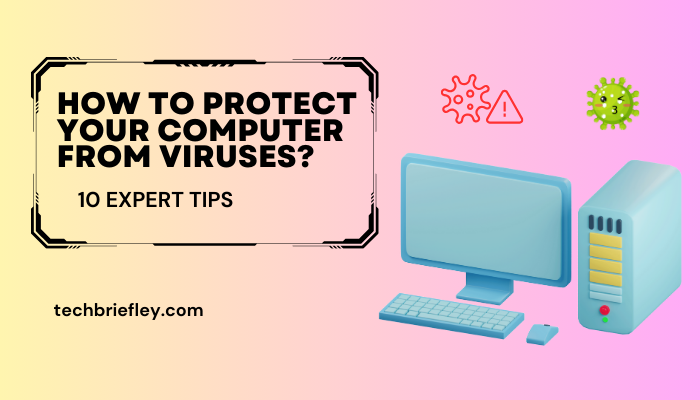In today’s digital age, where our lives are increasingly intertwined with computers and the internet, protecting our devices from viruses and malware has become paramount. Computer viruses, while not as prevalent as they once were, still pose a threat. In this article, we’ll explore expert tips on how to safeguard your computer from these digital pests and answer common questions about computer viruses.
1. Keep Your Operating System and Software Updated
One of the most critical steps to protect your computer from viruses is to ensure your operating system and software are up-to-date. Software developers regularly release updates to patch security vulnerabilities that can be exploited by viruses and malware. Enable automatic updates whenever possible, or check for updates manually.
2. Use Reliable Antivirus Software
Invest in a good antivirus software and keep it up-to-date. It’s like giving your computer armor against digital threats. Good antivirus software can detect and remove viruses, spyware, and other malicious programs before they wreak havoc on your computer. Some well-known options include Norton, McAfee, and Avast.
3. Be Cautious with Email Attachments and Links
Emails are a common vector for spreading viruses and malware. Avoid opening email attachments or clicking on links from people or sources you don’t know or trust. Even seemingly harmless attachments can contain hidden threats.
4. Enable a Firewall
A firewall acts like a digital barrier that shields your computer from potential internet threats. Ensure that your operating system’s built-in firewall is turned on, and consider using a hardware firewall for an added layer of protection.
5. Download Software from Trusted Sources
When downloading software or apps, only use reputable sources such as official websites or app stores. Avoid downloading software from shady websites, as they may distribute infected files.
6. Be Wary of Pop-Up Ads and Rogue Websites
Pop-up ads can be annoying, but they can also be a gateway for viruses. Never click on pop-up ads, especially those offering to download software or claiming that your computer is infected. Also, steer clear of suspicious websites, as they may contain harmful scripts.
7. Use Strong and Unique Passwords
Your passwords act as a defense against unauthorized access to your computer and accounts. Use strong, complex passwords that combine letters, numbers, and special characters. Avoid using easily guessable passwords like birthdays or common words. Consider using a password generator to help you generate and store secure passwords.
8. Educate Yourself about Phishing Attacks
Phishing attacks involve tricking users into revealing sensitive information like usernames and passwords. Be cautious when receiving emails or messages that ask for personal or financial details, even if they appear to be from reputable organizations. Verify the sender’s legitimacy before responding.
9. Regularly Backup Your Data
In the unfortunate event that your computer does become infected, having backups of your data can be a lifesaver. Regularly back up your important files to an external drive or a cloud-based service. This ensures that even if your computer is compromised, your data remains safe.
10. Practice Safe Browsing Habits
Safe browsing habits can go a long way in protecting your computer. Avoid clicking on suspicious links, refrain from downloading files from untrustworthy sources, and be cautious when interacting with unknown websites and emails.
Also read: How to Build a Gaming PC in 2023?
Answers to Common Questions:
How to Know if Your Computer Has a Virus?
Signs that your computer may have a virus include slower performance, unexpected pop-ups, unexplained crashes, and unusual activity like files disappearing or being encrypted. Run a reputable antivirus scan to confirm if your computer is infected.
How to Prevent Computer Viruses?
To prevent computer viruses, keep your software updated, use reliable antivirus software, exercise caution with email attachments and links, enable a firewall, download software from trusted sources, use strong passwords, educate yourself about phishing, regularly back up your data, and practice safe browsing habits.
Why Are Computer Viruses Dangerous?
Computer viruses can compromise your data, steal personal information, disrupt your computer’s functioning, and even spread to other devices on your network. They can lead to financial loss, privacy breaches, and significant inconvenience.
What Are Some Ways That a Computer or Business Can Be Infected with a Computer Virus?
Computer viruses can enter systems through infected email attachments, malicious downloads, compromised websites, and infected external devices such as USB drives. They can also spread through network vulnerabilities and software exploits.
Conclusion
Protecting your computer from viruses is essential to ensure your digital safety and privacy. By following these expert tips and staying vigilant, you can significantly reduce the risk of falling victim to computer viruses and enjoy a more secure computing experience. Remember that prevention is key, and a proactive approach is your best defense against these digital threats.

